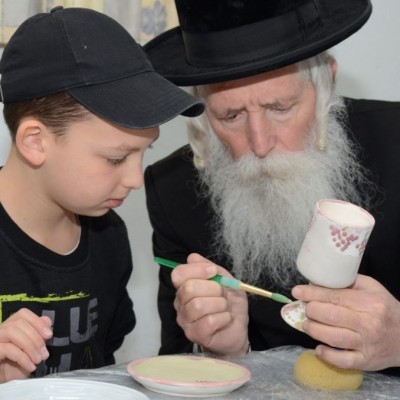
We are currently observing the period of the Sefirat Haomer. The minhagim of Sefirah are similar in some ways to those of the Three Weeks and Nine Days, as they include certain aspects of aveilut (mourning). Why? Because we are meant to remember the twenty-four thousand talmidim of Rabbi Akiva who perished in a plague. Why did they die? Chazal teach us that it was because they did not show proper respect to one another.
It was Rabbi Akiva himself who famously declared, Ve’ahavta l’reiacha kamocha—love your friend as yourself. He called this a fundamental principle of the Torah. One might wonder why Rabbi Akiva emphasized this so strongly. A simple explanation is that he witnessed the devastating consequences of a lack of this quality among his own talmidim.
How did the students fail in this respect? It was not by being overtly rude or hostile. Rather, when one voiced an opinion—right or wrong—the others would not give it proper consideration. They would just politely dismiss it. Is that how we would want to be treated? That is precisely why it is considered a failure of ve’ahavta l’reiacha kamocha.
I heard a beautiful insight from Rav Yitzchak Dovid Grossman shlit"a, the rav of Migdal Ha’emek. The gemorah in Masechet Shabbat recounts the story of a non-Jew who approached Hillel, requesting to learn the entire Torah “while standing on one foot.” Hillel responded, “That which you dislike, do not do to others.”
Why did Hillel reduce the Torah to this statement? Of course, there is much more to learn! But the message is clear: Without mastering the basics of bein adam l’chaveiro—interpersonal relationships—a Jew cannot begin to grow spiritually. This foundational concept is one we can all strive to implement.
This brings us to a fundamental question: How can a person truly love another as oneself? Isn’t it natural to prioritize one’s own needs first?
The Ohr HaChaim HaKadosh, in his commentary on Parshat Acharei Mot, offers an illuminating answer. He describes the relationship between Moshe and Aharon as a paradigm of true brotherly love. Despite the potential for jealousy—Moshe, the younger brother, becoming the leader, and Aharon receiving the honor of being the Kohen Gadol—there was no envy between them. When Aharon greeted Moshe upon his return to Mitzrayim, he did so with genuine joy. Similarly, Moshe taught Aharon the avodah of the Mishkan, despite being denied the privilege of entering himself.
The Ohr HaChaim explains that through teaching Aharon, Moshe forged a connection, making them as one. When we perform acts of kindness, we create connections that unite us as one entity. This unity enables us to love one another as ourselves because, in a profound sense, we are all interconnected.
To illustrate this idea, consider the story of a rabbi invited to speak at a girls’ high school. He noticed a note being passed among the students during his speech. Concerned, he later approached the principal, who promised to look into it. When she called him back, she explained that the note read: “He’s repeating the same stories and jokes from last year. Please act interested and laugh at the jokes!”
The rabbi was moved. The girls wanted to ensure that their guest felt valued, despite the repetition. This small act demonstrated true respect and an embodiment of ve’ahavta l’reiacha kamocha.
Let us strive to strengthen our relationships by demonstrating genuine consideration and respect for one another. In doing so, we will increase shalom among all Jews.
R' Dovi Chaitovsky and his family have the zechut to live in Eretz Yisrael, where he dedicates himself to learning and teaching Torah. His divrei Torah often draws from the shiurim of R’ Yisrael Altusky, shlit"a, of Yeshivat Torah Ore, which can be heard at kolhalashon.com.
Love Your Fellow: A Timeless Lesson From Sefirat HaOmer
Typography
- Smaller Small Medium Big Bigger
- Default Helvetica Segoe Georgia Times
- Reading Mode




